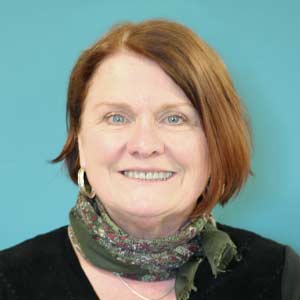Beautiful People Do Not Just Happen: Embracing Empathy in Leadership
By Dr. Sandi Coyne-Gilbert, MBA, DM
The COVID-19 pandemic of 2020 quickly prompted a global disruption in many of our daily lives. Activities and events continue to pause, and various businesses have closed their doors. This year, American citizens’ mental health was shaken as social distancing requires fluctuating levels of lockdowns, and school systems nationwide have transitioned to primarily virtual learning platforms. People continue to gather for protests that preach environmental justice and education reform while rallies and vigils cry out against racism and police brutality.
In a year that has made many people feel lost and left wondering, Americans are leaning in on what it truly means to be an effective leader.
The answer is empathy.
Compassion in end-of-life care
While previously employed at a hospice facility in Springfield, Massachusetts, I became acquainted with the work of Swiss-American psychiatrist Elisabeth Kubler-Ross, known for identifying the five stages of death and dying.
“The most beautiful people we have known are those who have known defeat, known suffering, known struggle, known loss, and have found their way out of the depths,” Kubler-Ross explained.
“These persons have an appreciation, a sensitivity, and an understanding of life that fills them with compassion, gentleness, and a deep loving concern. Beautiful people do not just happen,” she said, describing the individuals who, through the very essence of their beings, embody empathy.
I have learned that the emotional intelligence behind empathy is an essential trait, whether innate or acquired from lived experiences. Without the ability to “walk in someone else’s shoes” and truly understand others’ feelings, I wouldn’t have gotten very far in my hospice care career — or any profession, for that matter.
The advantages of altruism
Empathetic leaders cater to the human condition. They stand out because their tunnel-vision is focused not only on you, but on those around you as well. That thoughtful quality encourages curiosity and nurtures all of the connections that follow.
The skill of kind consideration doubles as respect. Engaging in empathy empowers individuals to feel included in sharing their experiences, ensuring that no one feels stuck, marginalized, or left in silence. Empathy is also a fundamental part of being an ally. Authentic leaders are active partners, not only for one another but especially for those who long to be acknowledged, appreciated, and included as well.
Essentials of understanding in inclusion
Genuine empathy brings intent and action to inclusivity. The awareness that we are not alone and that diversity in the human experience includes differing points of view allows us to acknowledge each audience’s unique nature.
Empathy also means not simply nodding in agreement, but asking for opinions outside of your own, exposing you to the needs of those who may not share your experiences. With America in dire need of increased inclusion, empathy — when met with cultural consistency — can reveal the privileges gained during groupthink. When similar people are seated at a table, their identical ideologies can be counter-productive and limit opportunities and outcomes for all.
Empathy provides a pathway for productive leadership
The outdated belief that emotions are all too often associated with workplace weakness couldn’t be farther from the truth. Empathy is an essential professional ability apt to increase cooperation, inspire communicative collaboration, and engage employee commitment. Empathy allows teams to trust one another and come together in a safe, collective community. Empathetic leaders also provide positive support, causing team members to feel secure and satisfied in their roles.
With empathy in your tool belt, you’ll be ready to tackle and take on anything.
Learn more about earning your Master’s in Organizational Leadership at Goodwin University.

Sandra (Sandi) Coyne-Gilbert is an accomplished leader with experience in both the education and nonprofit sectors. Coyne-Gilbert specializes in working with adult learners and is enthusiastic about instilling a passion for lifelong learning in her students. Her work with at-risk and marginalized groups provided her with unique insights into the power of education for people in transition. Beyond the educational field, Coyne-Gilbert also has experience in marketing and nonprofit leadership. Most notably, she was one of the driving forces behind the development of the Ronald McDonald House in Springfield, MA. Coyne-Gilbert looks forward to bringing her experiences to the classroom as program director for the master’s degree in Organizational Leadership at Goodwin University.

